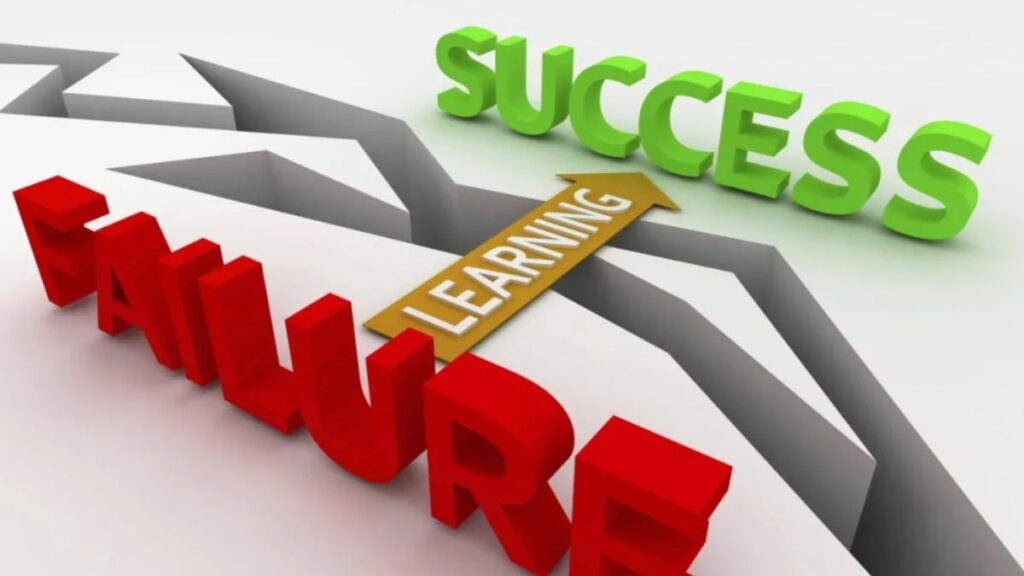In the journey of life, the pursuit of success is often marked by a series of obstacles and challenges. These challenges, commonly referred to as setbacks, can feel disheartening and discouraging. However, it’s crucial to understand that setbacks are not the end of the road but rather an integral part of the path to success. In fact, the ability to learn from setbacks is a defining characteristic of successful individuals. This article explores the dichotomy between success and failure, emphasizing the importance of learning from setbacks and how they can serve as stepping stones towards achieving one’s goals.
Understanding Setbacks: The Nature of Failure
Setbacks can take many forms, ranging from minor disappointments to significant failures. They can occur in various aspects of life, including personal endeavors, academic pursuits, and professional careers. The nature of a setback often lies in its ability to challenge our perceptions of success and failure. For many, failure is seen as a negative experience, leading to feelings of inadequacy and discouragement. However, when reframed, failures can serve as valuable learning experiences.
To effectively learn from setbacks, it’s essential to adopt a growth mindset—a concept popularized by psychologist Carol Dweck. A growth mindset encourages individuals to view challenges as opportunities for growth and improvement rather than as insurmountable obstacles. This shift in perspective is crucial for transforming setbacks into valuable lessons. By recognizing that failures provide insights into what doesn’t work, individuals can adjust their strategies and approaches, ultimately paving the way for future successes.
The Role of Resilience in Learning from Setbacks
Resilience is a critical factor in how individuals respond to setbacks. It refers to the ability to bounce back from adversity and maintain a positive outlook despite challenges. Resilient individuals are often more equipped to process their experiences, reflect on their failures, and extract valuable lessons from them. This process involves several key components: emotional awareness, realistic optimism, and proactive problem-solving.
Emotional awareness allows individuals to recognize and validate their feelings of disappointment or frustration after a setback. Rather than suppressing these emotions, acknowledging them is the first step toward healing and growth. Once individuals are aware of their emotions, they can adopt a realistic optimistic perspective. This does not mean ignoring the reality of the situation; instead, it involves recognizing the challenges while maintaining hope for future improvement.
Proactive problem-solving is the next step in the resilience process. After acknowledging emotions and fostering optimism, individuals can focus on identifying actionable steps to address the setback. This may involve seeking feedback, revising goals, or developing new strategies. The combination of these skills creates a powerful framework for learning from setbacks and ultimately enhances one’s ability to achieve success.
Learning from Setbacks: Case Studies of Successful Individuals
Throughout history, many successful individuals have faced significant setbacks, only to emerge stronger and more determined. One prime example is Thomas Edison, the inventor of the light bulb. Edison’s journey was riddled with failures, with reports suggesting he failed over a thousand times before achieving success. Rather than viewing these failures as defeats, Edison famously remarked, “I have not failed. I’ve just found 10,000 ways that won’t work.” This mindset exemplifies the importance of perseverance and the ability to learn from each attempt, regardless of the outcome.
Another notable example is J.K. Rowling, the author of the Harry Potter series. Before her monumental success, Rowling faced numerous rejections from publishers, along with personal struggles, including unemployment and depression. However, she persevered through these setbacks, using her experiences as fuel for her writing. Her resilience and ability to learn from her challenges ultimately led her to become one of the most successful authors in history. Rowling’s story serves as a powerful reminder that setbacks can be transformative experiences that contribute to ultimate success.
Strategies for Learning from Setbacks
To effectively learn from setbacks, individuals can employ several strategies that foster a constructive approach to failure. Here are some actionable steps to consider:
1. Reflect and Analyze
After experiencing a setback, take the time to reflect on the situation. What went wrong? Were there external factors at play, or were there aspects within your control? Analyzing the circumstances surrounding the setback can provide valuable insights and help identify patterns that may need addressing in the future. This reflective practice encourages a deeper understanding of oneself and the environment in which one operates.
2. Seek Feedback
Constructive feedback is an invaluable tool for growth. Reach out to mentors, peers, or trusted individuals who can provide honest assessments of the situation. Their perspectives may highlight blind spots or offer alternative solutions that were not previously considered. Embracing feedback, even when it is difficult to hear, is a critical component of the learning process.
3. Set Realistic Goals
When facing a setback, it can be tempting to overhaul everything in an attempt to correct the course. However, it’s important to set realistic, achievable goals moving forward. Break larger objectives into smaller, manageable steps. This approach not only makes goals less daunting but also allows for incremental progress, providing opportunities for small wins along the way.
4. Cultivate a Support Network
Surrounding oneself with a supportive network can significantly enhance resilience. Sharing experiences with others who have faced similar challenges can provide comfort and encouragement. Additionally, engaging with a community of like-minded individuals fosters a sense of belonging and motivation, reinforcing the idea that setbacks are a universal experience.
5. Embrace Failure as Part of the Journey
Finally, it’s essential to shift the narrative around failure. Embrace the idea that failure is not an end but a vital part of the journey toward success. By reframing setbacks as learning opportunities, individuals can reduce the fear associated with failure, making it easier to take risks and pursue new ventures.
The Psychological Impact of Learning from Setbacks
Understanding the psychological impact of learning from setbacks can further illuminate why this process is essential for personal growth. Setbacks can trigger a range of emotional responses, including disappointment, frustration, and anxiety. However, how individuals choose to respond to these emotions can either perpetuate a cycle of negativity or foster resilience and growth.
By focusing on the lessons learned rather than the failure itself, individuals can experience a sense of empowerment. This shift in focus not only enhances self-esteem but also builds confidence in one’s abilities to navigate future challenges. Furthermore, as individuals become adept at learning from setbacks, they may also develop a more optimistic outlook on life, which can have far-reaching benefits across various domains, including relationships, career advancement, and overall well-being.
Conclusion: The Path to Success
In conclusion, the journey to success is rarely linear. Setbacks are an inevitable part of this journey, but they do not have to define our outcomes. By adopting a growth mindset, cultivating resilience, and employing effective strategies for learning from setbacks, individuals can transform failures into powerful catalysts for success. As the stories of Thomas Edison and J.K. Rowling demonstrate, the ability to learn from adversity is not just an option; it is a prerequisite for achieving one’s goals.
Success and failure are intertwined, and learning from setbacks is a crucial part of this complex relationship. As we navigate our personal and professional lives, let us embrace setbacks as opportunities for growth and self-improvement, ultimately leading us toward the success we strive for. In this way, every setback can become a stepping stone on the path to achieving our dreams.






